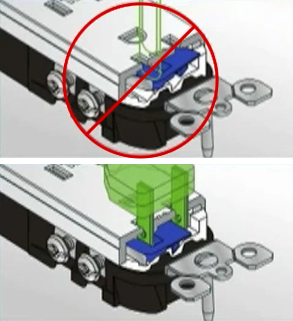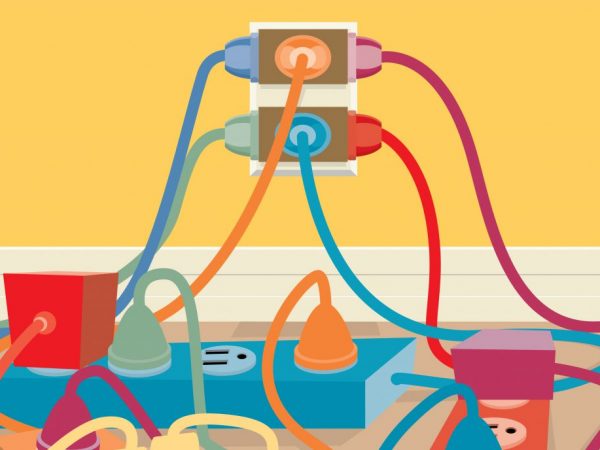Time to brush up on some basics! It shouldn’t shock you that there are a few need-to-knows when it comes to home electrical safety. Simple precautions can help keep your family—and property—much safer in the long run.
Electrical shocks happen when your body becomes part of an electric circuit. You’re a great conductor of electricity, but of course, you never want to be! Shocks cause tingling, burns, loss of breath or worse.
Recognizing these common shock hazards will help you avoid them:
Shock Hazard 1: Ungrounded Outlets. Do your outlets have three prongs? They should, but in many older homes, they may not. And even if they do, they must be checked to ensure they’re actually grounded. A grounded outlet has a third prong which routes electricity to the ground—instead of to you—when there’s a short circuit.
Shock Hazard 2: Extension Cord Overload. Extension cords shouldn’t substitute permanent-wiring needs, period. Loose connections and faulty wires put you at risk. Using an extension cord that does not meet the wattage requirement of an appliance is also dangerous. Plugging in several extension cords because you don’t have enough outlets means it’s time for an electrical upgrade! Call your electrician.
Shock Hazard 3: Frayed or Damaged Electrical Cords. Appliance wires and electrical cords deteriorate in time. Exposed metal presents significant risk for electrical shock. Examine cords regularly, and replace them as necessary. Never tape them.
Shock Hazard 4: Exposed Outlets Around Little Ones. “Don’t stick anything in the electrical socket.” Sure, you know this one, but it’s not obvious to curious youngsters. Cover electrical outlets with safety plugs. Sticking fingers or metal objects in the socket will result in electrical shock.
Shock Hazard 5: Using Appliances Near Sinks and Bathtubs. We live in a high-tech world! You likely have hair dryers, radios, electric razors and more. We all know water and electricity don’t mix, and we don’t intend on dropping anything into the tub—but accidents happen. Be extremely careful with the appliances you use in the bathroom, or near water. Empty sinks and tubs before powering your appliances and shut the toilet lid to prevent dropping your electronics into it and causing accidental shock.
Concerned about electrical safety in your home or want a professional opinion? Don’t hesitate to contact your local licensed electrician. They can identify additional risks and bring you up to code.




